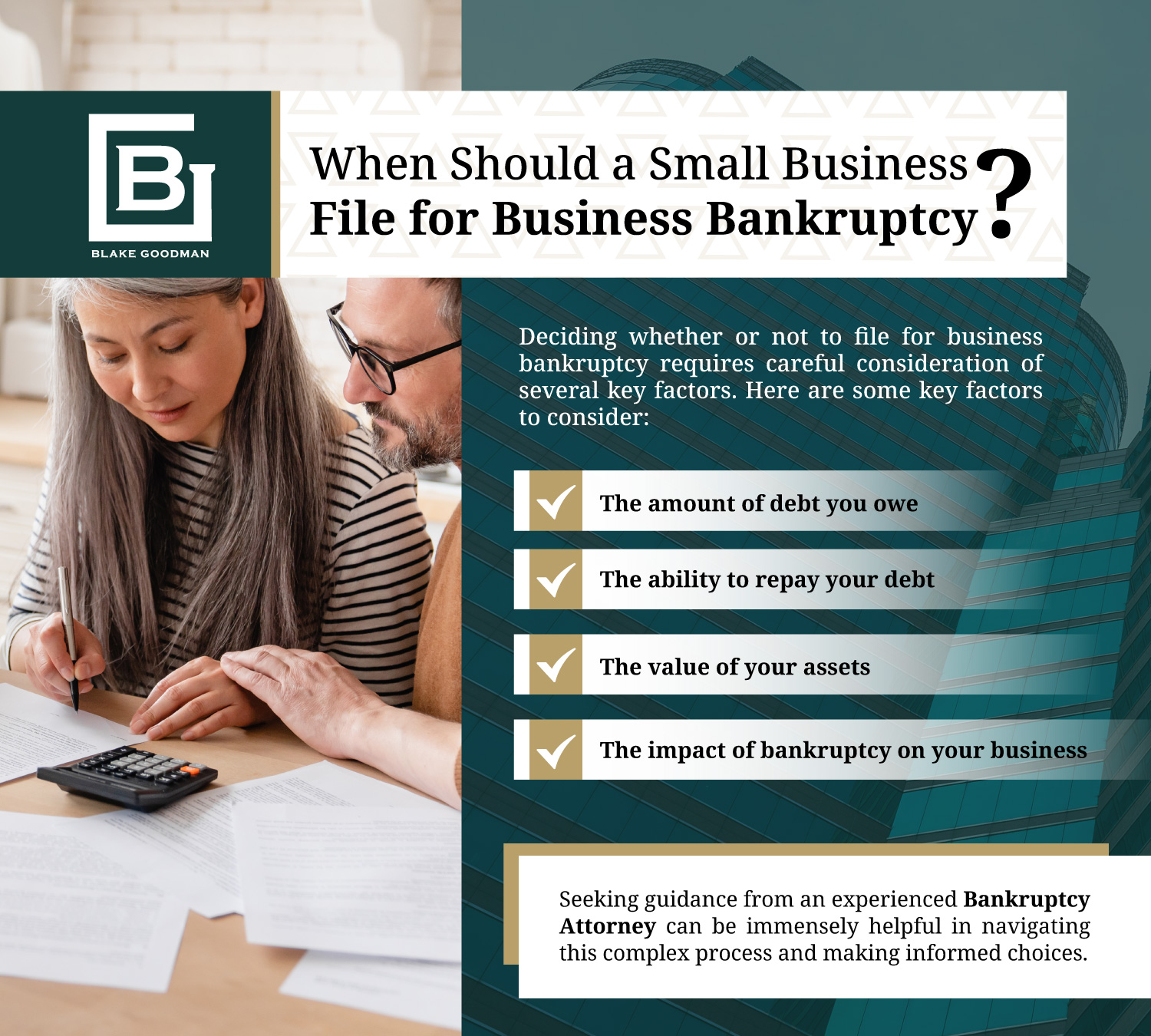What To Expect When Filing for Bankruptcy for Your Small Business
Running a small business is a lot of hard work. But even if you’re doing everything right, there are times when things can go wrong financially. If you’re struggling to keep your head above water, you may be wondering if filing for bankruptcy is the right decision. In this blog post, we’ll discuss the factors to consider when deciding whether or not to file for business bankruptcy. We’ll also talk about the different types of bankruptcy available to small businesses, and how a bankruptcy attorney can help you navigate the process. Keep in mind that our professional Maui bankruptcy attorneys are dedicated to helping you start over. If your business, credit score, or reputation is at risk, reach out to us promptly for a free consultation and flexible payment options to initiate your case.
everything right, there are times when things can go wrong financially. If you’re struggling to keep your head above water, you may be wondering if filing for bankruptcy is the right decision. In this blog post, we’ll discuss the factors to consider when deciding whether or not to file for business bankruptcy. We’ll also talk about the different types of bankruptcy available to small businesses, and how a bankruptcy attorney can help you navigate the process. Keep in mind that our professional Maui bankruptcy attorneys are dedicated to helping you start over. If your business, credit score, or reputation is at risk, reach out to us promptly for a free consultation and flexible payment options to initiate your case.
Types of Bankruptcy Available to Small Businesses Owners
When small businesses face financial distress, different types of bankruptcy can provide potential solutions. The two main options for small businesses are Chapter 7 and Chapter 13 bankruptcy.- Chapter 7 bankruptcy is a liquidation bankruptcy. This means that your assets will be sold, and the proceeds will be used to pay off your creditors. If there are any assets left over, you will get to keep them. This bankruptcy type offers a streamlined approach, swiftly resolving the financial situation and providing closure for the business entity. By embracing Chapter 7, businesses can efficiently navigate the liquidation process and attain a swift resolution to their financial obligations.
- Chapter 13 bankruptcy is a reorganization bankruptcy. While Chapter 13 bankruptcy is primarily designed for individuals, it can provide substantial benefits to business owners. Unlike sole proprietors who can file for Chapter 13, businesses themselves are unable to pursue this option. However, for owners facing overwhelming personal debts, Chapter 13 can offer a viable solution for reducing obligations such as credit card balances. By alleviating personal financial burdens, business owners can potentially enhance their ability to maintain the operations of their businesses and keep them afloat during challenging times.

When Should a Small Business File for Business Bankruptcy?
Deciding whether or not to file for business bankruptcy requires careful consideration of several key factors. These factors include the amount of debt owed, the ability to repay that debt, the value of assets compared to debts, and the potential impact of bankruptcy on the business. Here are some key factors to consider:- The amount of debt you owe. If you owe more money than you can realistically repay, filing for bankruptcy may be a good option.
- The ability to repay your debt. If you’re struggling to make your monthly payments, and you don’t see a way to get out of debt, filing for bankruptcy may be the best option for you.
- The value of your assets. If you don’t have any assets that are worth more than your debts, filing for bankruptcy may not be necessary.
- The impact of bankruptcy on your business. Bankruptcy can have a negative impact on your business credit, and it can make it difficult to get loans in the future. So, it’s important to weigh the pros and cons carefully before making a decision.
How a Maui Bankruptcy Attorney Can Help
If you’re considering filing for business bankruptcy, it’s important to speak with a bankruptcy attorney. A Maui bankruptcy attorney can also help you:
speak with a bankruptcy attorney. A Maui bankruptcy attorney can also help you:
- File the necessary paperwork.
- Negotiate with creditors.
- Protect your assets.
- Restructure your debt.
Get in Touch with a Bankruptcy Lawyer in Maui, HI
When facing financial challenges in your small business, the decision to file for bankruptcy requires careful consideration of various factors. Assessing the amount of debt, your ability to repay, the value of assets, and the impact on your business are crucial steps in making an informed choice. To navigate this complex process, it is essential to seek guidance from a knowledgeable bankruptcy lawyer like Blake Goodman, P.C. If you’re considering business bankruptcy, don’t hesitate to reach out to us today for a consultation, we are here to help you find the best solution for your business’s financial future.
Blake Goodman received his law degree from George Washington University in Washington, D.C. in 1989 and has been exclusively practicing bankruptcy-related law in Texas, New Mexico, and Hawaii ever since. In the past, Attorney Goodman also worked as a Certified Public Accountant, receiving his license form the State of Maryland in 1988.
Rate this Post





